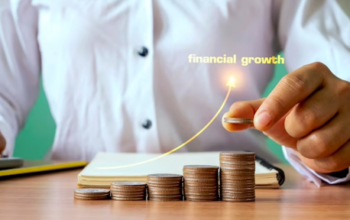Oil production cuts hit Saudi Arabia’s economy hard again, but the non-oil sector on which the kingdom is pinning its hopes for job growth is showing signs of improvement.
Saudi Arabia’s economy contracted for a fifth straight quarter as the kingdom curtailed crude production to fulfill its commitments to OPEC, though the non-oil sector – the engine of job creation – showed signs of improvement.
Gross domestic product shrunk 4.6% in the third quarter compared to the same period of last year, according to the statistics authority. In line with most other nations, that was an improvement from a 7% contraction between April and June as the worst effects of the coronavirus pandemic wore off.
The oil economy fell 8.2% – the biggest drop since at least the start of 2011, when Bloomberg began compiling such data – as OPEC curbed output to prop up prices. Brent crude has risen to about $51 a barrel since the cuts started, but the global benchmark is still down 22% this year.
The non-oil sector lost less steam. It declined by 2.1%, compared to 8.2% in the second quarter, as the government eased virus restrictions and businesses gradually reopened.

The overall figure was slightly worse than an estimated contraction of 4.2% released by the statistics body last month, which didn’t include a breakdown by sector.
The world’s largest oil exporter is facing a dual crisis this year as the pandemic and lower energy prices strain its finances and the private sector.
The kingdom pumped an average of 8.8 million barrels a day between July and September, down from 9.3 million in the previous quarter and 9.4 million a year earlier. While OPEC+ – an alliance between the Organization of Petroleum Exporting Countries and others such as Russia – started its cuts in May, Saudi Arabia’s second-quarter production numbers were skewed by its record output in April during a brief price war.
The improved non-oil performance reflects a partial return to normalcy for businesses in the Arab world’s biggest economy. Officials haven’t imposed any new restrictions since May, and the country – which has had more confirmed cases of the virus than anywhere in the Middle East aside from Iran and Iraq – has so far avoided another wave of infections.
Many restaurants, malls and gyms are bustling again and the government is preparing to start vaccinations this week.

Still, economists have said austerity measures including spending cuts and a tripling of value-added tax will continue to weigh on growth.
Finance Minister Mohammed Al-Jadaan said on Tuesday that the government is prioritizing fiscal discipline, with the budget deficit expected to narrow to 4.9% of GDP next year from 12% in 2020.
He stressed that government-controlled funds could spend money on behalf of the state. Officials have lent heavily on the sovereign wealth fund, known as the Public Investment Fund, to invest domestically.
The government projects an overall economic contraction of 3.7% this year and growth of 3.2% in 2021.
SOURCE : BLOOMBERG



